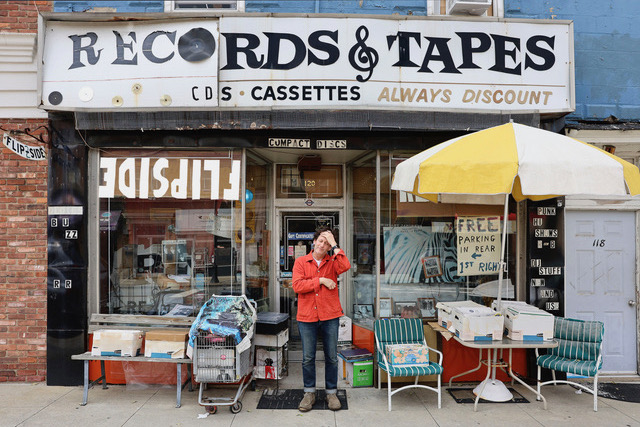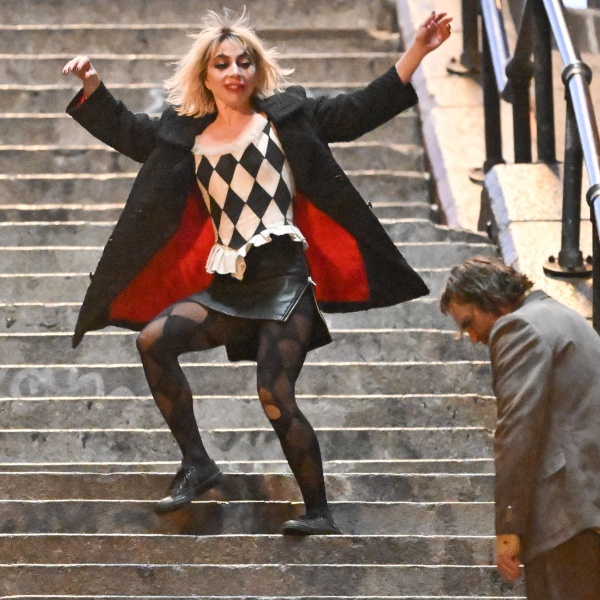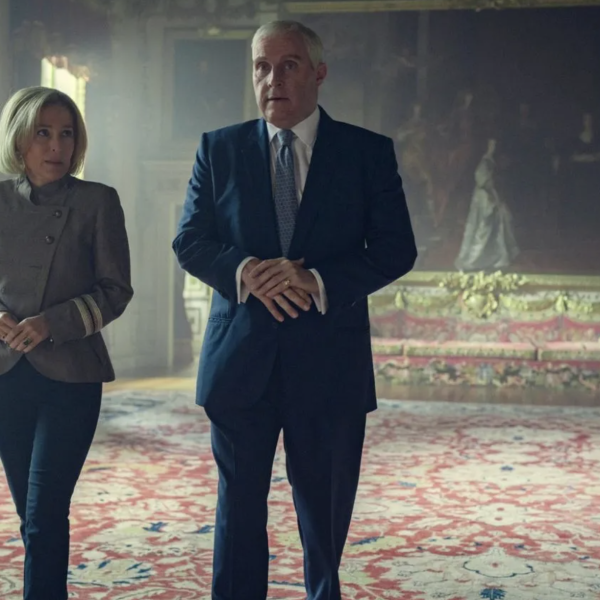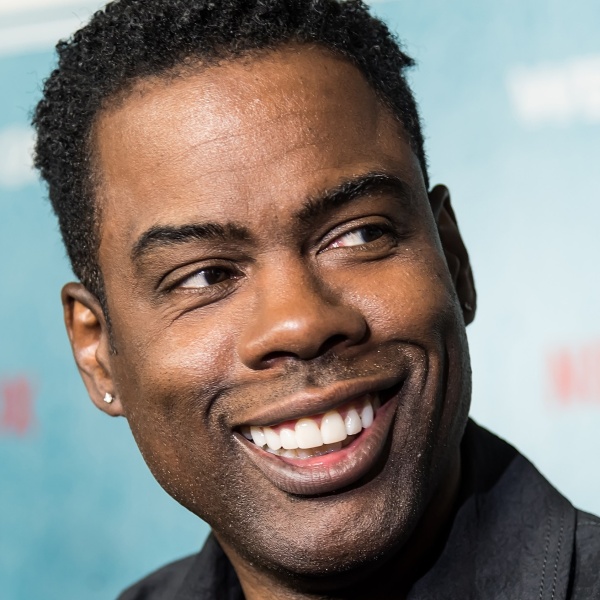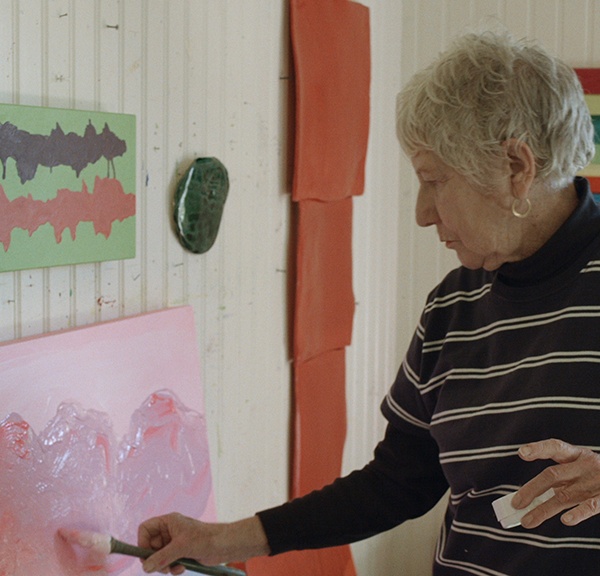“Flipside,” an endearing, dizzying documentary about the crushing convergence between art and commerce, begins with a common cold open. What we presume to be our enigmatic subject, the late legendary jazz photographer Herman Leonard, offers us a few pearls of wisdom that have led to his success. An array of close-ups of the singular, black and white portraits he took of Duke Ellington, Frank Sinatra, and Nat King Cole, from a retrospective exhibition of his work, further instills his importance to an unknowing audience. These are also Leonard’s final days. He’s dying from cancer. From the opening, we think “Flipside” will be a “great man you must know more about” story.
But this documentary isn’t about the jazz photographer. At least, not directly. There are other stories: A woman writer battling writer’s block, “This American Life” creator Ira Glass’ musical, and the documentary’s primary inspiration, a tiny record store in Pompton Lakes, New Jersey, called Flipside Records. These are all unrealized ideas director Chris Wilcha once had for documentaries. But over the years, by way of life’s curves, commercial jobs, and the shockingly fleet passage of time — none of them have come to fruition. This film picks up those loose ends, combining them into a single picture of how artists must often set aside their dreams for stability, and the regrets and joys that follow such decisions.
Though it’d be easy for Wilcha’s journey to play like a hodgepodge of discarded parts, “Flipside,” a film produced by Judd Apatow, is like a perfect, wondrous B-side collection: It is filled with the ideas you wished had become singles, and the intriguing conceptions that, even in their failure, tell you a bit more about the artist.
Wilcha found early success in 2000 with his debut feature “Target Shoots First,” a film composed of daily recordings at his soul-sucking post-grad office job. The documentary captured the rut many of his fellow Gen-Xers felt: All of them hated corporations, but ultimately, you have to work to live — so they went to work in cubicles. Though the early gig gave Wilcha inspiration for his debut film, that first job also stands as Wilcha’s first compromise with commerce.
Later the director went to work on turning Glass’ “This American Life” into a documentary series; soon he moved to Los Angeles to make the now-relegated to DVD extra “Funny People Diaries,” a behind-the-scenes look at the making of Apatow’s comedy. Before long, in a bid to finance his next feature, Wilcha shifted to crafting commercials. One project turns to three, which soon turns to ten, which quickly turns to many. Wilcha looks up and he’s married with children, a film career stalled.
What finally spurs Wilcha to start “Flipside,” is really an oncoming mid-life crisis. Because usually when you arrive at the midpoint in life, you come to remember when you were happiest. You then try to recapture that feeling. For Wilcha that desire manifests in several ways: He returns to his childhood home to comb through the hoard of keepsakes — band t-shirts, vinyl, other ephemera — so he can donate them. He also returns to the record store run by Dan Dondiego, where the director spent his teenage years working.
Similar to Wilcha’s life, the record store is cluttered with buried memories, at a crossroads between passion and reality. The filmmaker aims to save his friend’s store from closing by making a documentary about the quirky, disarrayed place where people like the checkered-suit dressed Floyd Vivino, host of the defunct “Uncle Floyd Show,” come to visit. Metaphorically, of course, Wilcha isn’t only hoping to preserve this tiny business. He wants to maintain the last bulwark he sees against mortality. It doesn’t immediately work. Because life momentarily takes Wilcha away from Flipside Records, causing him to leave for a decade.
In the meantime, we’re introduced to Wilcha’s other unrealized projects. The editing between segments moves intuitively, giving the feel of a well-sequenced track list. Sometimes Wilcha’s earnest narration offers up clunkers like “Finding the path out of the paralysis together,” which strain for a personal poeticism but can veer to sounding treacly. The director counterbalances his own sentimental leanings with the frank interviews of his subjects, who chastise those who experience writer’s block or are incapable of completing projects. “I always hear people say, well I couldn’t do this because the circumstances were wrong. Bullshit,” says Leonard. “There will always be circumstances. I just kept at it until I got it.”
When we hear from people like Leonard and his good friend, “Deadwood” creator David Milch — now battling Alzheimer’s — we’re granted inspiration from men at their terminus. This film is a tribute to their memory and an examination of their creative ethos, the unencumbered vision that Wilcha sometimes marvels at. Of course, the film knows that Wilcha isn’t an exception. He is a working creative, and as the SAG-AFTRA and WGA strikes have borne out, there are many more like him in the business.
While “Flipside” mostly concerns the filmmaker’s regrets, particularly in the face of other people who’ve accomplished much, it doesn’t veer where you expect. He doesn’t turn to self-loathing, lamenting the path his creative life has taken to support a family. In the middle of his life, he is grateful, waiting for what the B-side might bring.
Grade: A-
“Flipside” premiered at the 2023 Toronto International Film Festival. It is currently seeking U.S. distribution.
